Charitable gaming commission to examine rent charges and casino growth
| Published: 10-17-2023 5:10 PM |
Rental fees and the proliferation of casinos within the state were two of the topics that came up before a new study committee responsible for examining charitable gaming operations in New Hampshire.
State Senator Timothy Lang expressed concern about some charities being surprised when they receive a bill in their mail for rent that cuts into the money they expected to receive.
“I think we need to address the issue of rent as part of this committee,” said Lang, a Sanbornton Republican. “I told them there must be a cap on it, but I was wrong; it doesn’t sound like there is a cap on the rent.”
Charities are required to pay rent to casinos during their scheduled donation events. Fees can fluctuate significantly, ranging from $250 to $750 across the 14 casinos in New Hampshire.
Concord Casino owner Andy Sanborn adjusted the fees so he took half of all charity payouts in the form of rent, public records show. Despite Sanborn’s other legal which could ban him from operating a casino in the state, his practice of charging whatever he wanted for rent was baked into the state’s books.
“There isn’t a maximum limit [on the rent]. So the statement in the law is that the only restraints are the rent is the fair market rental value for the property,” said John Conforti, the lottery commission’s chief compliance officer.
If a casino’s earnings on a game night fall short of the rent agreed upon with charities, the rent is adjusted downwards to ensure that charities don’t end up with a negative balance.
Former State Representative Patrick Abrami, who was appointed as the chair of the study committee Tuesday, recognized the growth and changes the industry has seen over the years and emphasized the group’s role of shaping it into what it’s meant to be.
Article continues after...
Yesterday's Most Read Articles
 Hometown Heroes: Couple’s sunflower fields in Concord reconnects the community to farming
Hometown Heroes: Couple’s sunflower fields in Concord reconnects the community to farming
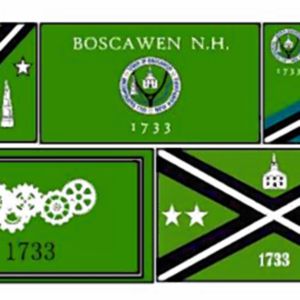 Boscawen resident takes issue with proposed town flag designs
Boscawen resident takes issue with proposed town flag designs
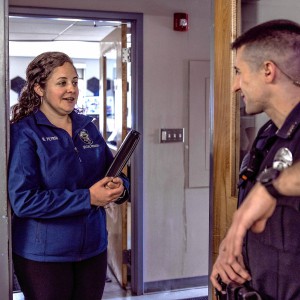 Skepticism turns to enthusiasm: Concord Police welcome new social worker
Skepticism turns to enthusiasm: Concord Police welcome new social worker
 With new plan for multi-language learners, Concord School District shifts support for New American students
With new plan for multi-language learners, Concord School District shifts support for New American students
 With Concord down to one movie theater, is there a future to cinema-going?
With Concord down to one movie theater, is there a future to cinema-going?
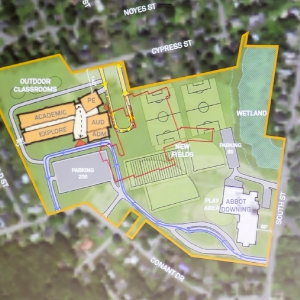 Opinion: The Concord School Board can restore trust with residents
Opinion: The Concord School Board can restore trust with residents
“I think we all support charitable gaming here but we might be unsure about the new landscape that when we approach it is want we want it to be,” said Abrami. “This will be a guide for the legislature going forward as to what we want in our opinion.”
Abrami beat out Lang to become chair by a 7-5 vote. The decision was far less contentious compared to the initial appointment of State Rep. Laurie Sanborn as the chair during the commission’s inaugural gathering in August.
Laurie Sanborn operates the Concord Casino with her spouse, Andy Sanborn, who was found to be unsuitable to be involved in charitable gaming by the New Hampshire Lottery Commission and Attorney General. Sanborn is challenging the decision and continues to operate the Concord Casino in the meantime.
Sanborn fraudulently used COVID relief funds for personal expenses, including buying sports cars for himself and his wife, according to the Lottery Commission and Attorney General investigation. Furthermore, casinos were prevented from applying for the money.
A hearing on the matter has been delayed twice, most recently by a court order requested by Sanborn, who argued he didn’t have enough time to mount a defense.
Two senators, five state representatives, two members from charitable groups, one charitable gaming operator, one public member, Attorney General John Formella, and Lottery Commission director Charles McIntyre make up the 13-member study committee.
Abrami holds a position as a public member.
Another issue on the committee’s radar is whether the state should impose a limit on the number of gambling locations in the state.
New Hampshire is now home to 14 operational casinos, which have transformed into entertainment destinations featuring live shows, concerts and dining experiences alongside the traditional array of table games and card rooms.
As of now, state law does not limit the number of casinos that can operate in New Hampshire.
This lack of restrictions has fueled significant growth in the casino industry, with revenues soaring to new heights year after year.
Casinos grossed $54 million in 2022, which is about $10 million more than was taken in 2021, an increase of 24%, according to a Monitor analysis.
As revenues grow, local charities and non-profits are reaping the financial benefits. The free cash, which state law sets at 35% of the take, causes tension between the organizations that are backing further expansion of new betting establishments and opponents who say the industry is operating with few restrictions while preying upon those who can least afford to lose.
While Abrami would like for more charities involved in charitable gaming through more gambling halls, he stressed the need for more regulation. He pointed out that the industry has evolved with more out-of-state developers building larger facilities.
“All of our regulations and all of our rules were based on smaller facilities,” explained Abrami. “If we wind up having consolidations and bigger facilities, I think we have to have to look at what that looks like in terms of the number of charities that can participate in any given day.”


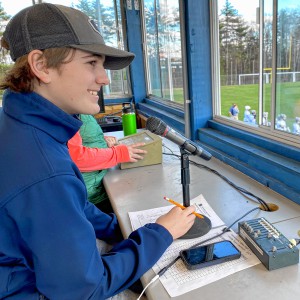 Voice of the Pride: Merrimack Valley sophomore Nick Gelinas never misses a game
Voice of the Pride: Merrimack Valley sophomore Nick Gelinas never misses a game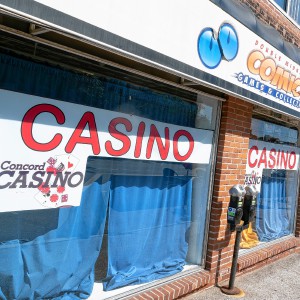 With less than three months left, Concord Casino hasn’t found a buyer
With less than three months left, Concord Casino hasn’t found a buyer Kearsarge Middle School drone team headed to West Virginia competition
Kearsarge Middle School drone team headed to West Virginia competition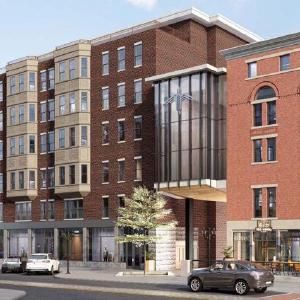 Phenix Hall, Christ the King food pantry, rail trail on Concord planning board’s agenda
Phenix Hall, Christ the King food pantry, rail trail on Concord planning board’s agenda
